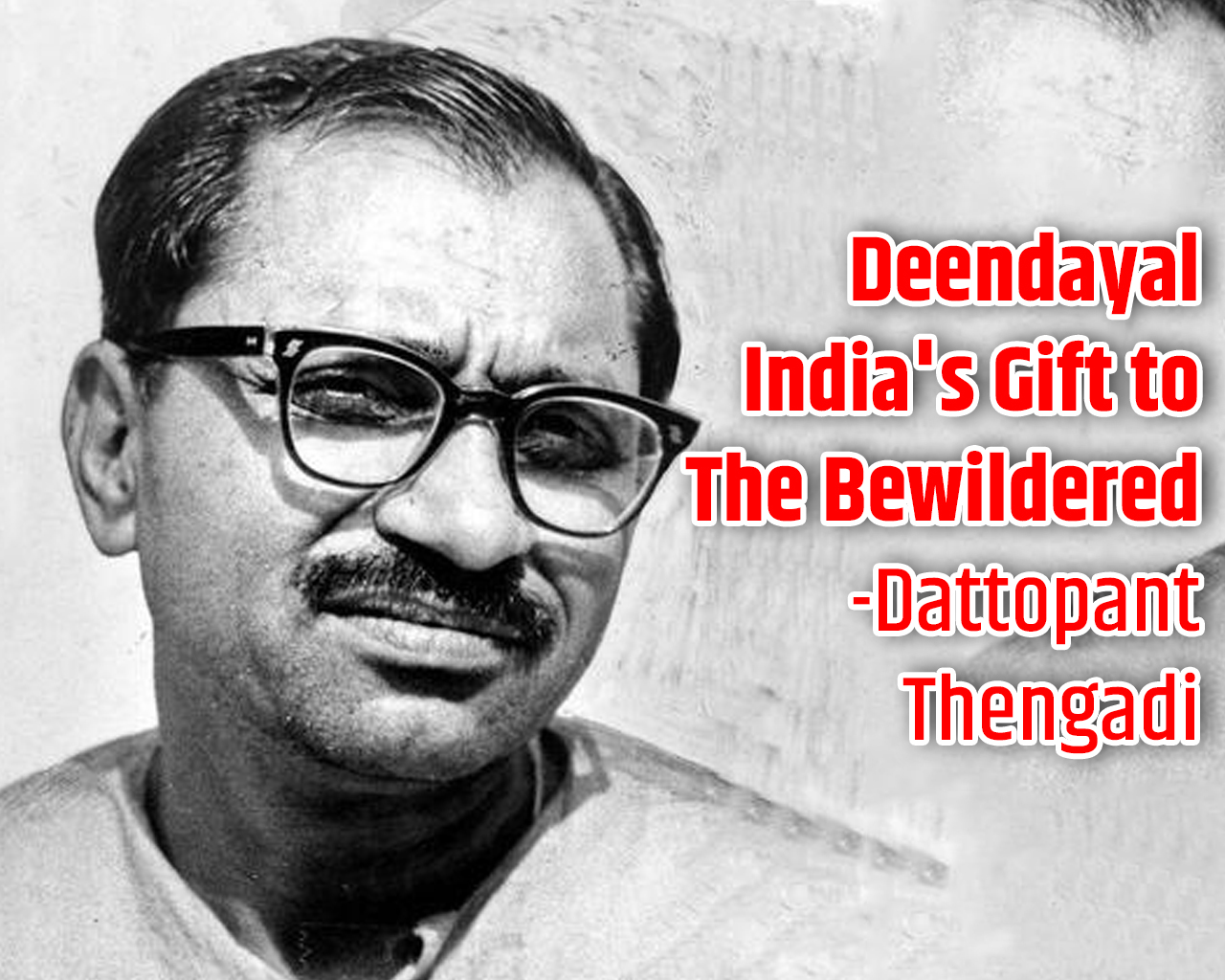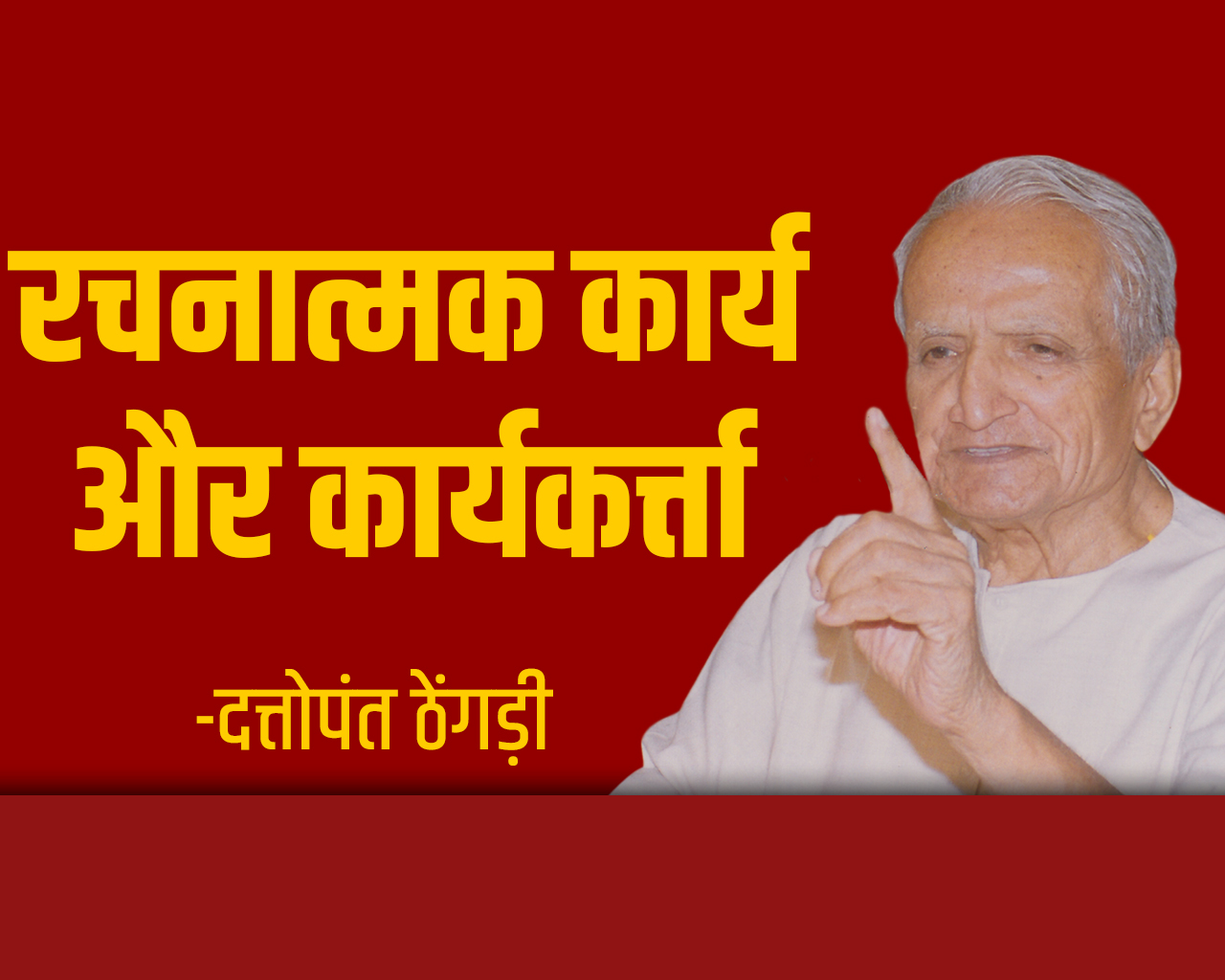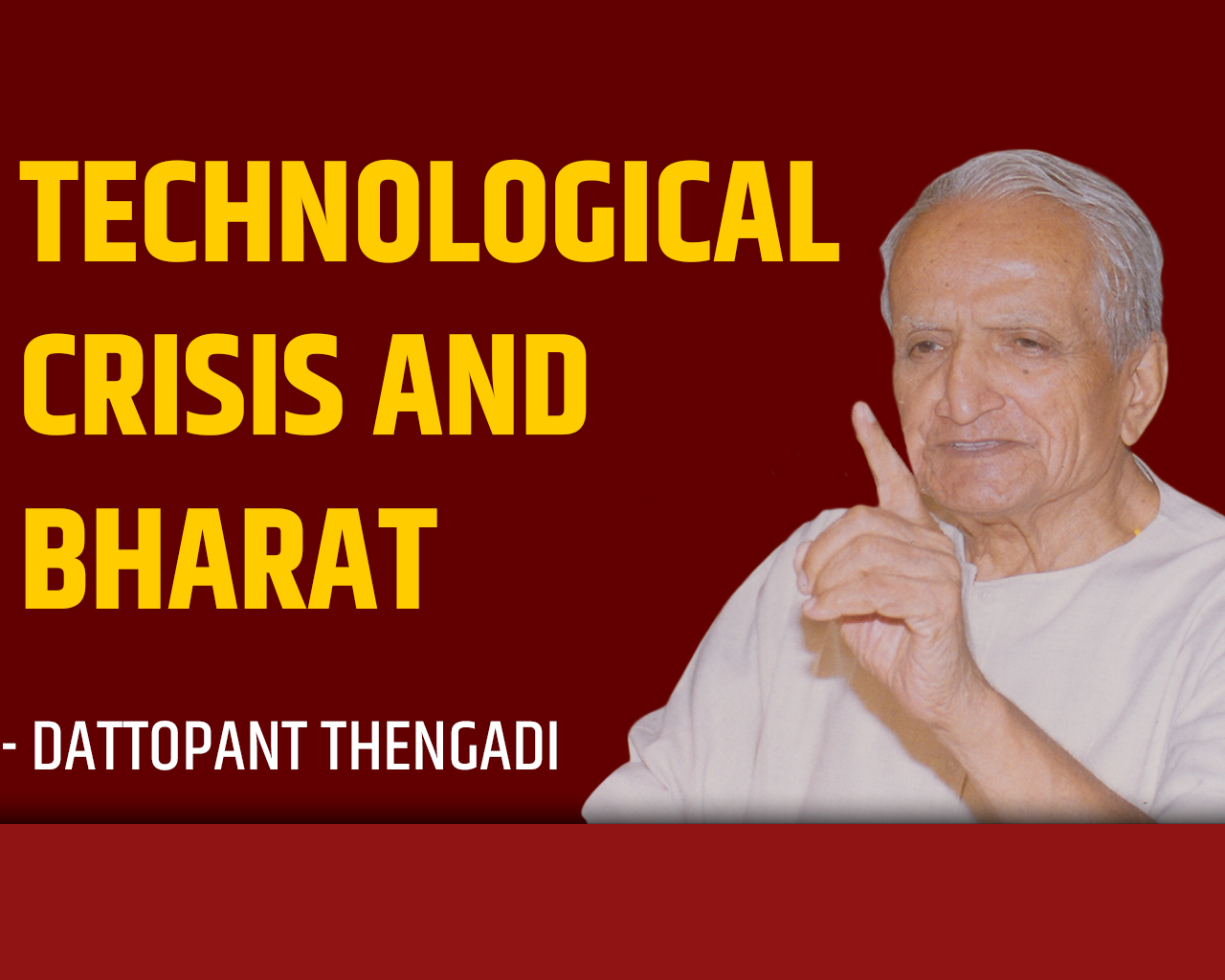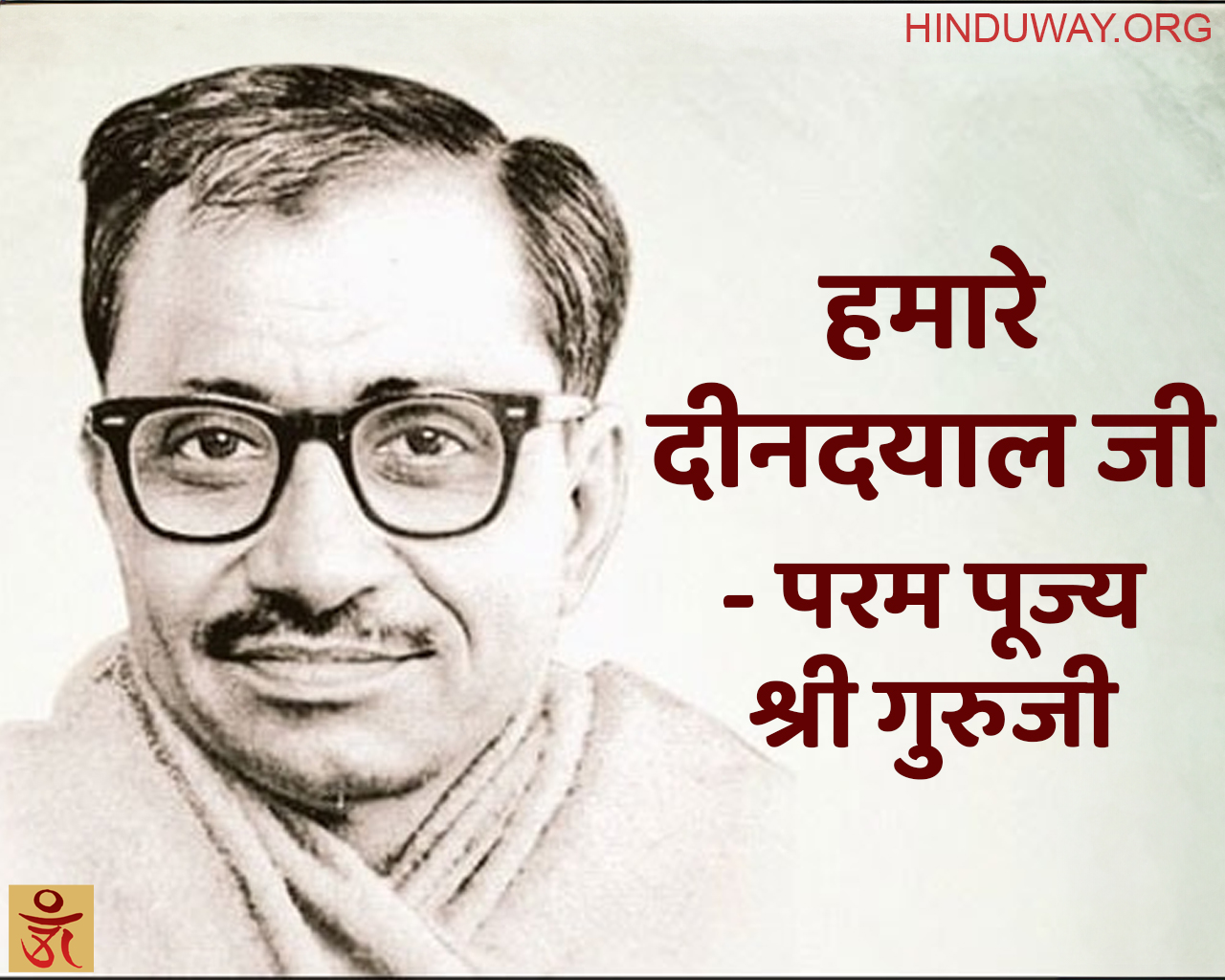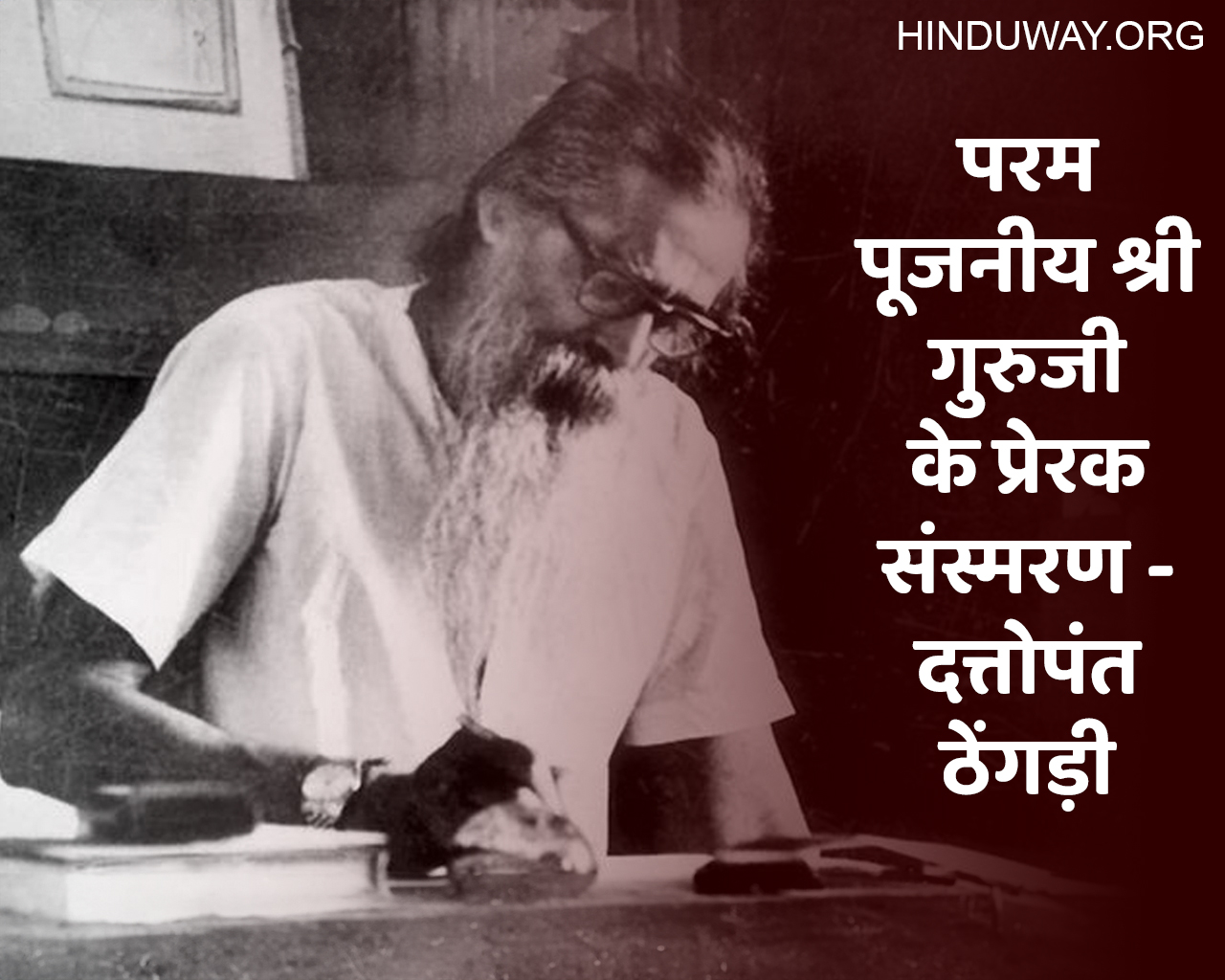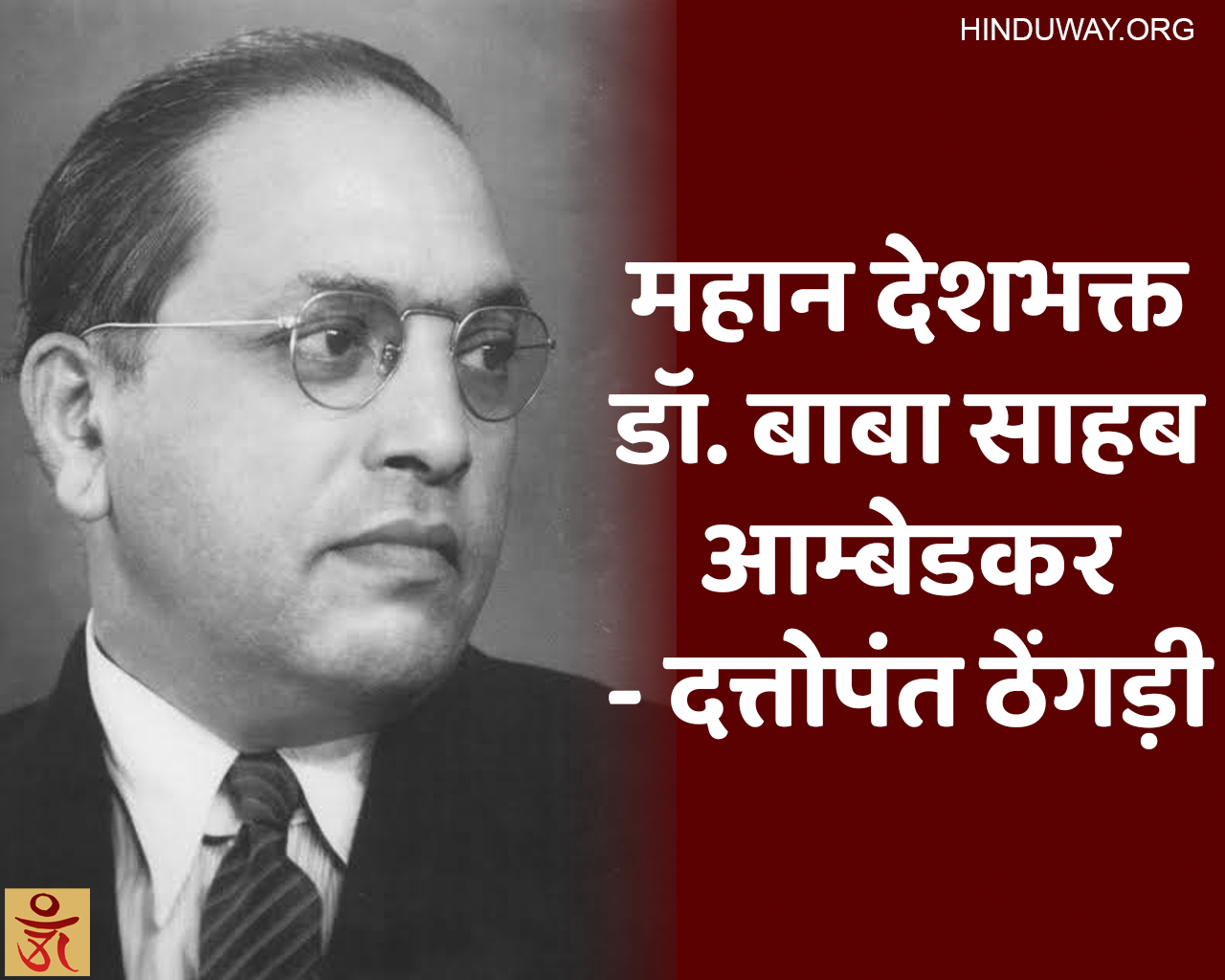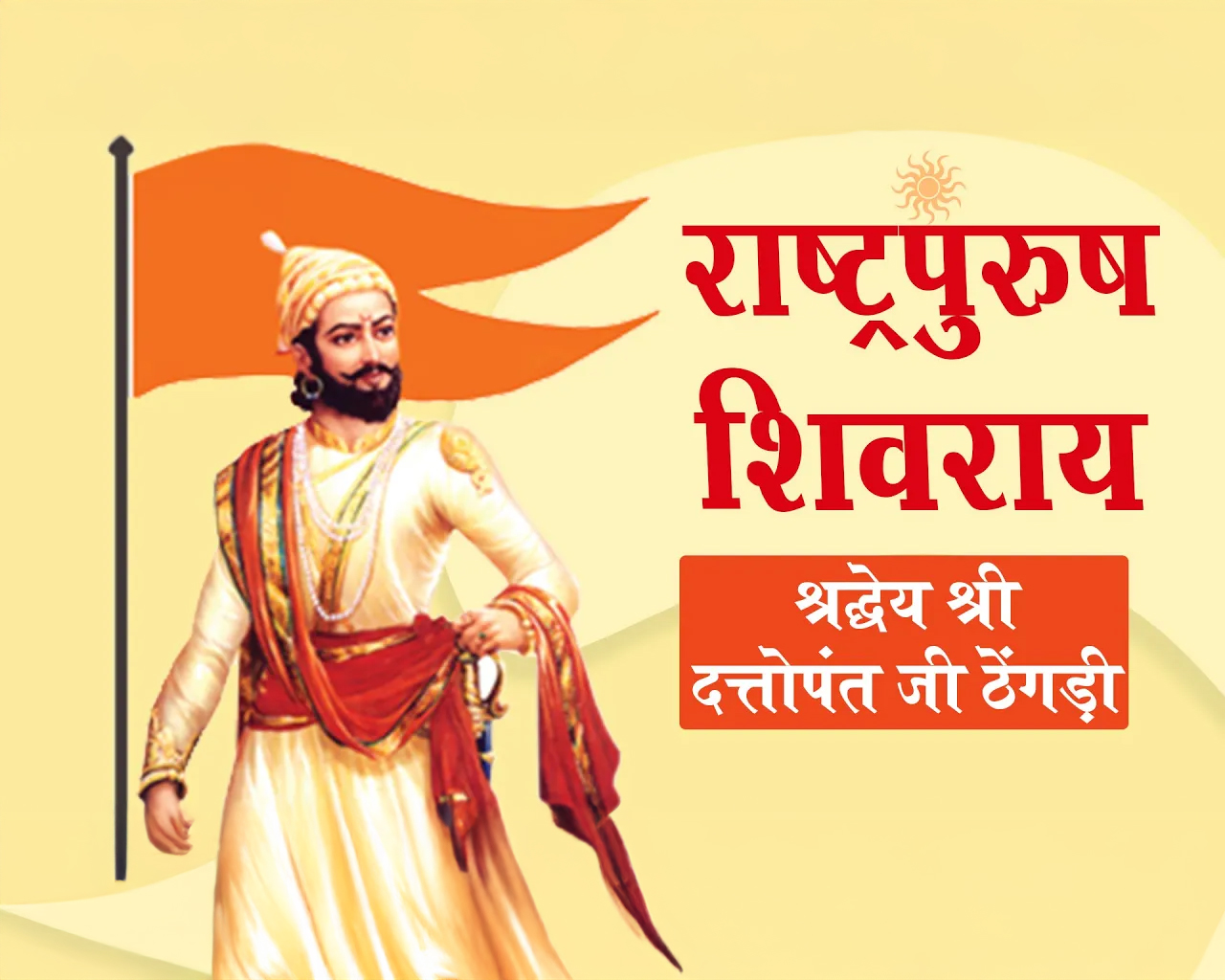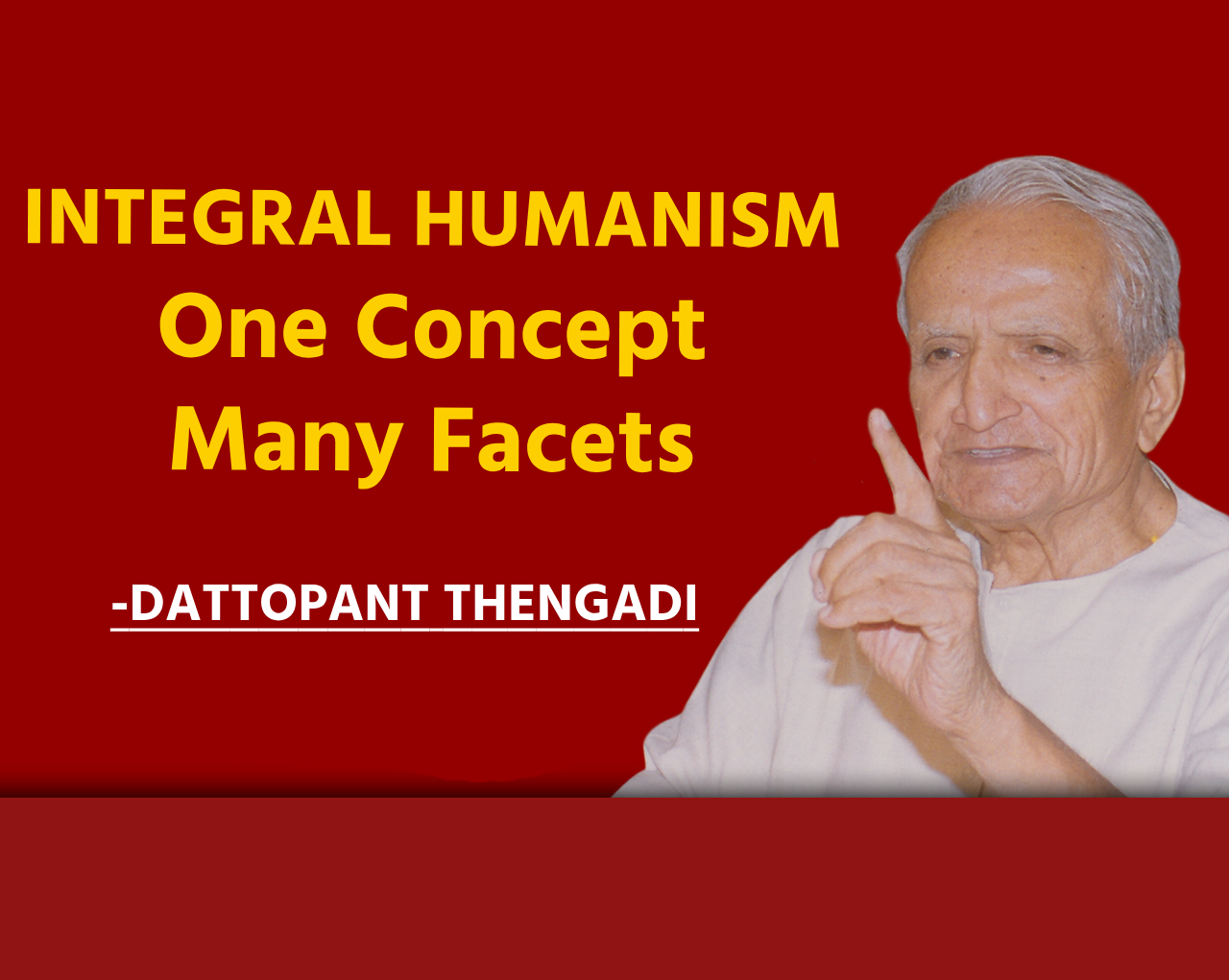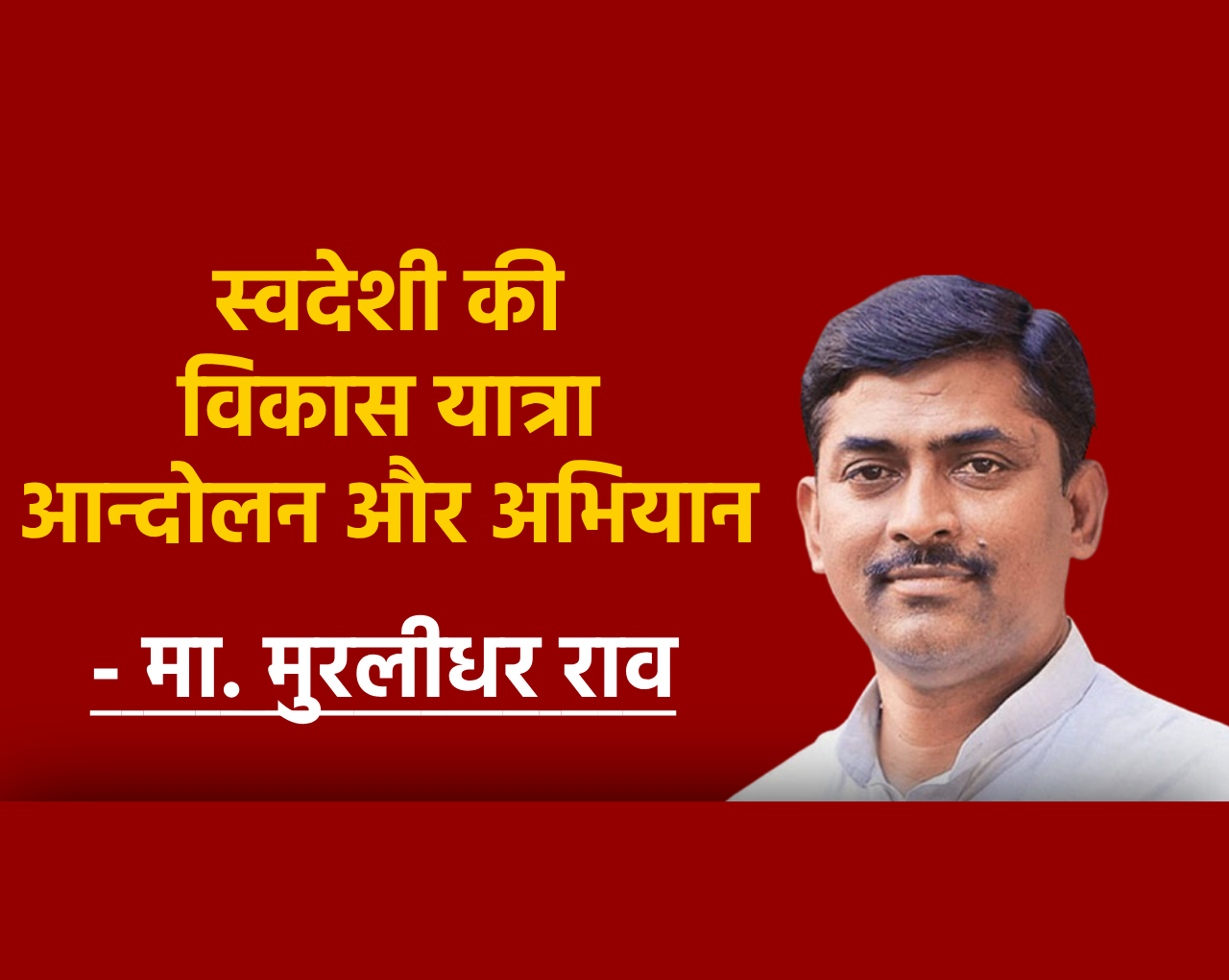Pandit Deendayal Upadhyay was a nationalist to the core. He loved not only the abstract concept of “Nation” but also the nation in flesh and blood. But his patriotism did not prevent him from being an internationalist. Rather internationalism was only the natural evolution of his enlightened nationalism. He had realised that affinity of an individual with different organisms, ranging from family to the Universe, was only an outward manifestation of the evolution of his consciousness. The more developed the consciousness, the larger and higher would be the organism with which one is identified. But this being a process of evolution, the higher level of consciousness does not preclude the previous lower levels. It is inclusive, not exclusive, in character. One can be equally and simultaneously attached to all the organisms without doing injustice to any one of them. What is needed is a realistic, an integral view of things.
Even a human being must be considered in an integrated way; the body, mind, intelligence and soul of a person must not be thought of separately.
This realisation led Deendayalji to expound his theory of “Integral Humanism”, which is in direct contrast with the compartmentalised thinking of the West. The latter has given rise to strife and struggle at all levels in all departments of life. The seed, the sprout, the trunk, the branch, the leaves and the fruit constitute one single, continuous process of evolution. They are not mutually conflicting or exclusive.
In fact, Panditji’s comprehension was not confined to the human species. His integralism indicated the flowering of the human consciousness into universal consciousness. That is why he was a humanist without being homocentric. Consequently he thought that the more appropriate term for his thought-system would be “Integralism”. But in view of his field of practical activity be considered the term “Integral Humanism” more convenient in the immediate context, as a compromise between his ultimate concept and the common level of understanding in the field, even as his use of the term ‘ism’ was, again, a similar concession to the common level of understanding which could not comprehend the grand ‘ism-lessness’ of the eternal Dharma
He was the first political leader of the country who added yet another dimension to the traditionally defined ‘nation-concept’. Every nation has its soul, its ‘Chiti’, he declared. The strength and energy activising the nation is its “Virat”. It is channelised by “Chiti’. The place of ‘Virat’ in the life of a nation is similar to that of ‘Prana’ in the body. Just as ‘Prana’ infuses strength in various organs of the body, refreshes the intellect, and keeps body and soul together, so also in a nation, with a strong ‘Virat’ alone can democracy succeed and the government be effective. “When the ‘Virat’ is awake, diversity does not lead to conflict, and people cooperate with each other like the various limbs of the human body, or like the members of a family.”
Panditji was, again, the first political leader in post-independence era to declare unequivocally that what mankind needed most was a Dharma-Rajya, not merely a rule by majority. He took pains to explain how Dharma was different from Religion and Dharma Rajya from theocracy. But Dharma alone is supreme. State is one of the several institutions or instruments of Dharma; an important one, but not above Dharma. It is subject to Dharma. Sovereignty vests in Dharma. Dharma sustains the Nation Even the Constitution must be in tune with Dharma. The Articles of the Constitution violating Dharma must be considered null and void to that extent. Both the Legislature and the Judiciary are on an equal plane. Neither is superior to the other. Dharma is higher than both; both are governed by Dharma. The people have a right to elect their own government. But neither the government nor the people have any right to act against Dharma.
Panditji was a votary of ‘Bharatiyata’ not only because it was his national heritage. He was convinced that the maladies of humanity in general and India in particular could be remedied only on the strength of Bharatiya culture. Is it possible for the West to reconcile individual liberty with social discipline? In the materialistic West, liberty soon degenerates into licentiousness, and discipline into regimentation. The West could never conceive of basic organic unity in the midst of apparent diversities, for it mistook uniformity for unity. It could never appreciate the merit of the Bharatiya socio- economic order, for it mistook our stability for stagnation and its own adventurism for dynamism. Western thinkers could not conceive of a unitary form of government with maximum decentralisation of administrative authority, because it is beyond their comprehension that there can be set up a central state authority without statism, and with regional, industrial and civic self- governments which has been the special characteristic of the Bharatiya social order. The West commandered national self-reliance incompatible with the spirit of international co-operation. In the West, nationalism can degenerate into imperialism and inter- nationalism into disloyalty to one’s own nation. The integral humanism expounded by Panditji has exposed the inadequacies, lopsidedness, imbalance and futility of the compartmentalised thought-systems of the West. His integralism enabled him to visualise the emergence of a World State enriched by the growth and contribution of different national cultures, and evolution of ‘Manava Dharma’ enriched by the perfection of all religions, including ‘materialism’.
Deendayalji was a ‘Drashta’, a seer, not merely a philosopher. Because of his ‘Sadhana’, his identification with Dharma, he could, like a Time Machine, roll himself back and forth in the centuries and stand face to face with the ancient seers as well as unborn generations. He worked out for us the solutions of modern problems in the light of ancient wisdom. He foresaw and diagnosed maladies that would afflict humanity in the distant future; and prescribed for them the remedies tested with success by ‘Sanatana Dharma’.
It has been said that people without a vision perish. A nation without its ‘Drashta’ is doomed to decay and death. But our Dharma is Sanatana, i.e., endless as well as beginningless. It has, therefore, been the sacred mission of Bharat Mata to give birth, in every age, to Drashtas who deliver a message of hope to the otherwise frustrated mankind pursuing false ideals. In this age, Pandit Deendayal Upadhyaya has been the precious gift of this Dharma Bhumi to the bewildered.
SEPTEMBER 1979
| साभार सन्दर्भ |
| यह आलेख दीनदयाल शोध संस्थान द्वारा प्रकाशित त्रे-मासिक पत्रिका “मंथन” मे सितंबर 1979 को प्रकाशित हुआ था। |

